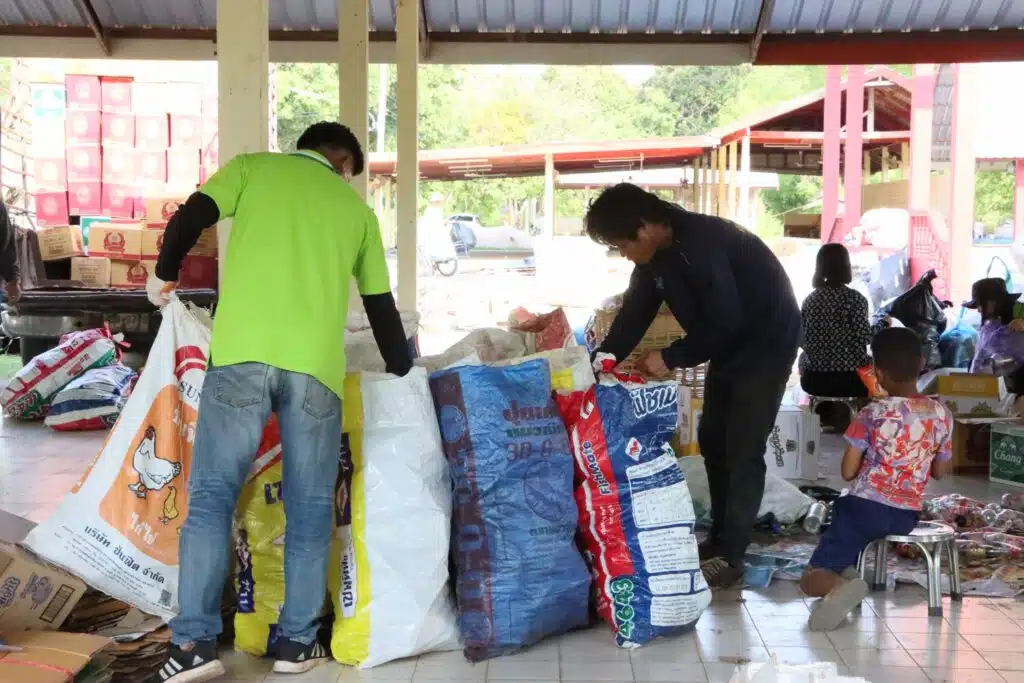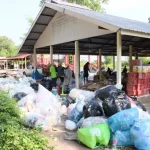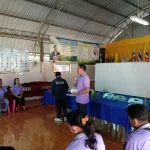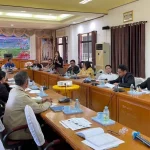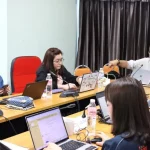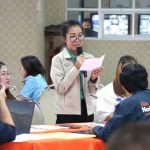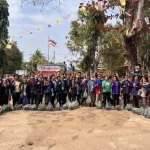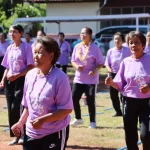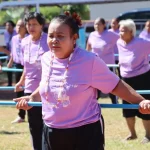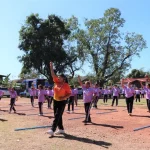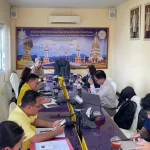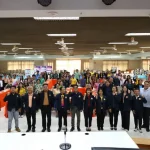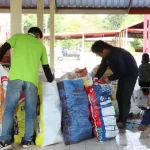The Node Flagship Nakhon Phanom, operated by Nakhon Phanom University as the provincial management unit with a key strategic focus, has been implementing the project “Driving and Scaling Up Models for Elderly Health Promotion and Waste Management” continuously over the past three years (2020–2025). The initiative aims to cover all districts in the province, reaching a total of 76 areas. This project represents a province-wide collaboration driven by active participation from diverse network partners and is supported by the Thai Health Promotion Foundation (ThaiHealth), through the Office of Opportunity Creation (Office 6). A recent workshop was held to present project outcomes and lessons learned at the Phanom Sin Meeting Room, Faculty of Liberal Arts and Science, Nakhon Phanom University (Marukhanakhon campus). The event was chaired by Mr. Somchai Saenlang, Deputy Public Health Doctor of Nakhon Phanom Province, with more than 100 participants from government and local agencies.Strategic Implementation Covering 76 AreasThe operations of Node Flagship Nakhon Phanom focus on two main areas:Elderly health promotion, andCommunity waste managementOver the three-year period, the project has covered a total of 76 target areas, categorized by year as follows:2020–2021: Waste 12 areas, Elderly 14 areas — 26 areas total2022–2023: Waste 9 areas, Elderly 16 areas — 25 areas total2024–2025: Waste 10 areas, Elderly 15 areas — 25 areas totalThese subprojects resulted from allowing local communities to propose plans for consideration. After being selected, the provincial management unit deployed mentoring teams to support implementation in collaboration with local administrative organizations. This approach led to systematic waste management at the community level and behavioral changes among the elderly—particularly in healthy eating, drinking clean water, regular exercise, and reducing or quitting alcohol and smoking.Lessons Learned Shared Through a Knowledge Exchange PlatformThe summary workshop featured project presentations, panel discussions, and knowledge-sharing activities. A key highlight was the panel discussion on “Impressive Outcomes, Scaling Strategies, and Key Lessons Learned”, featuring practitioners from various areas:Kanyawara Singphan, Professional Nurse, Namakhue Subdistrict Health Promotion HospitalPrasan Kanenil, Director, Ummao Subdistrict Health Promotion HospitalNoppada Khamsiri, Public Health OfficerPitchanan Ratchawat, Director of the Public Health Division, Nam Kam Subdistrict MunicipalityBenjawan Fueangtalop, Head of Administrative Office, Phon Thong Subdistrict Administrative Organization The session was moderated by Asst. Prof. Sumisa Kumla and Mr. Ittipon Bunbut.Additionally, Asst. Prof. Dr. Kanin Chueaduangphui, Project Director, presented the overall project overview, while Asst. Prof. Dr. Benjayamas Pilayant, Assistant Project Manager, summarized the project workflow. The event also featured a “Show & Share” session showcasing outstanding work from each area, innovation exhibitions, and knowledge exchange from subprojects.Power of Partnerships for Sustainable ProgressA pivotal factor driving the project’s success is the network of partners, who collectively planned, supported resources, and ensured continuous implementation at the local level. Key provincial partners include:
Nakhon Phanom Provincial Office of Local AdministrationNakhon Phanom Provincial Public Health OfficeNakhon Phanom Provincial Office of Natural Resources and EnvironmentLocal administrative organizations (LAOs) Subdistrict Health Promotion Hospitals (Health Centers) Municipalities and Subdistrict Administrative Organizations (SAOs) Their collaboration enabled the prototype model to be effectively applied in real settings and contributed to policy-level momentum for future sustainability.Asst. Prof. Dr. Kanin Chueaduangphui stated that the past three years have not only resulted in tangible outcomes but also strengthened cross-sector collaboration, increasing the involvement of strategic partners and enhancing community capacity for sustainable environmental and health development.“We hope that this model can be transferred to other provinces in the future through the cooperation of all stakeholders. Sustainable change must begin with shared understanding and collective action at every level.”Node Flagship Nakhon Phanom is not only advancing waste management and elderly well-being at the local level but is emerging as a model of seamless collaboration among academia, government, and communities—offering scalable, sustainable solutions for other provinces in the years ahead.

